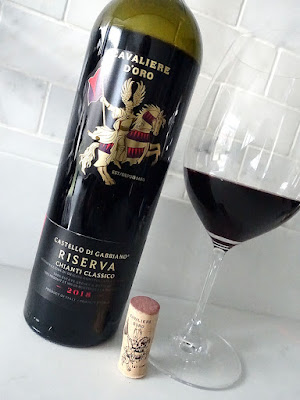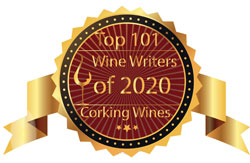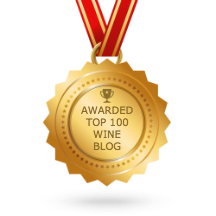Tonight's red wine review is an excellent Cru Bourgeois Cab-Merlot from the Pauillac appellation on the Left Bank of Bordeaux. It made its debut at the LCBO and was featured as part of the theme exploring France's top wine regions in the February 1st LCBO VINTAGES New Release Collection.
Château Plantey is situated in the winegrowing commune and appellation of Pauillac, within Haut-Médoc in Bordeaux. The small village of Pauillac is located on the west bank of the Gironde, while Château Plantey is only a couple of kilometres west of the village centre. Château Plantey is an old property which used to be owned by the De Gerès family from Loupes, Seigneurs of Camarsac.
In 1958, the vineyard was purchased by Gabriel Meffre. A former print media journalist for twelve years, Claude Meffre, son of Gabriel, now owns Château Plantey. Claude decided to join the family business in 1996 and first managed Château La Commanderie in Saint-Estèphe. From 2000, Claude has managed Château Plantey.
With most red wines from the Left Bank being Cabernet Sauvignon-based blends, this red wine from Pauillac is also a blend that consists of 50/50 Cabernet Sauvignon and Merlot that was grown on the exceptional terroir around the château, which is located in the commune of Pauillac, just north of the hamlet of Artigues, about 2 km inland from the shores of the Gironde. The 27 hectares of vines, which sit about 30 metres higher than the area surrounding them, average 30 years old and are planted on chalky clay and gravel soil. The grapes were harvested by hand and mechanically, then traditionally vinified with thermoregulation in vats for three weeks. The wine was aged for 12 months in a combination of both vats and barrels, with 25% of the barrels new. In the 2018 vintage, Château Plantey was the only Cru Bourgeois listed from Pauillac.
The 2018 vintage in Pauillac began with a relatively mild winter, followed by very complex weather at the beginning of the season, with a deluge of rain and permanently high humidity until mid-July. From the rest of July through September, conditions were incredible, including searing heat, and perfect for achieving great maturity. While the 2018 vintage in Pauillac is considered to be excellent, some of the wines showed a slightly overcooked character, as well as some inconsistencies across the region in quality. Let's see how this 2018 Bordeaux red wine from Pauillac is tasting tonight...
This Cru Bourgeois is a blend of 50% Cabernet Sauvignon and 50% Merlot and has a lovely, elegant, and medium-high to highly aromatic nose of ripe red & black fruits, currant, and cassis aromas layered over earthy-smoky minerality, graphite, and accents of red cherry notes. The weighty, medium-full to full-bodied is dry with medium-firm, well-structured, ripe and slightly chewy tannins that are smooth and fine grained. Ripe flavours of red & black fruits, currant, cassis, black cherry surround a savoury core of earthy minerality and graphite. Touch chalky and grippy textured on the mid-palate, along with some warmth, but still well-balanced. Quite elegant throughout with savoury, graphite mineral notes lingering on the exceptionally long finish. Lovely! Enjoy this highly recommended buy into the early 2030s. Score: 92+ pts
While this wine appears to be sold out at the LCBO, you may be able to get your hands on it through their Agent - Churchill Cellars.
Château Plantey is situated in the winegrowing commune and appellation of Pauillac, within Haut-Médoc in Bordeaux. The small village of Pauillac is located on the west bank of the Gironde, while Château Plantey is only a couple of kilometres west of the village centre. Château Plantey is an old property which used to be owned by the De Gerès family from Loupes, Seigneurs of Camarsac.
In 1958, the vineyard was purchased by Gabriel Meffre. A former print media journalist for twelve years, Claude Meffre, son of Gabriel, now owns Château Plantey. Claude decided to join the family business in 1996 and first managed Château La Commanderie in Saint-Estèphe. From 2000, Claude has managed Château Plantey.
With most red wines from the Left Bank being Cabernet Sauvignon-based blends, this red wine from Pauillac is also a blend that consists of 50/50 Cabernet Sauvignon and Merlot that was grown on the exceptional terroir around the château, which is located in the commune of Pauillac, just north of the hamlet of Artigues, about 2 km inland from the shores of the Gironde. The 27 hectares of vines, which sit about 30 metres higher than the area surrounding them, average 30 years old and are planted on chalky clay and gravel soil. The grapes were harvested by hand and mechanically, then traditionally vinified with thermoregulation in vats for three weeks. The wine was aged for 12 months in a combination of both vats and barrels, with 25% of the barrels new. In the 2018 vintage, Château Plantey was the only Cru Bourgeois listed from Pauillac.
The 2018 vintage in Pauillac began with a relatively mild winter, followed by very complex weather at the beginning of the season, with a deluge of rain and permanently high humidity until mid-July. From the rest of July through September, conditions were incredible, including searing heat, and perfect for achieving great maturity. While the 2018 vintage in Pauillac is considered to be excellent, some of the wines showed a slightly overcooked character, as well as some inconsistencies across the region in quality. Let's see how this 2018 Bordeaux red wine from Pauillac is tasting tonight...
Tasting Note:
CHÂTEAU PLANTEY 2018 - AC Pauillac, Bordeaux, France (#38192) (XD) - $44.95This Cru Bourgeois is a blend of 50% Cabernet Sauvignon and 50% Merlot and has a lovely, elegant, and medium-high to highly aromatic nose of ripe red & black fruits, currant, and cassis aromas layered over earthy-smoky minerality, graphite, and accents of red cherry notes. The weighty, medium-full to full-bodied is dry with medium-firm, well-structured, ripe and slightly chewy tannins that are smooth and fine grained. Ripe flavours of red & black fruits, currant, cassis, black cherry surround a savoury core of earthy minerality and graphite. Touch chalky and grippy textured on the mid-palate, along with some warmth, but still well-balanced. Quite elegant throughout with savoury, graphite mineral notes lingering on the exceptionally long finish. Lovely! Enjoy this highly recommended buy into the early 2030s. Score: 92+ pts
While this wine appears to be sold out at the LCBO, you may be able to get your hands on it through their Agent - Churchill Cellars.
























